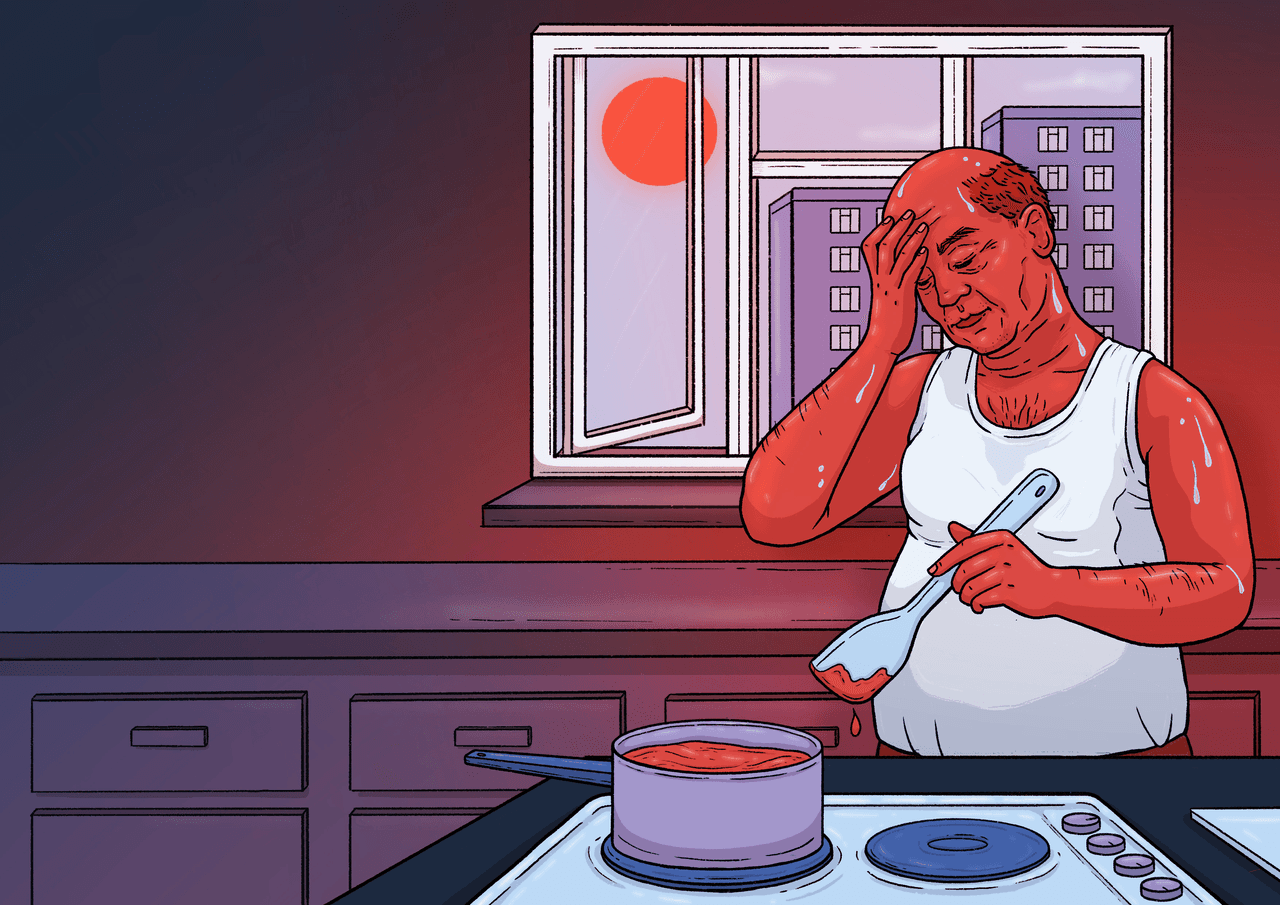
The rising danger of hot summers
Enjoying the hot weather? It’s likely to last, with this month shaping up to be the hottest June on record. But as pleasant as long warm evenings may be, high temperatures can be deadly – especially in a country ill-equipped to deal with them.
During last year’s record-breaking heatwaves, many people across the UK found it unbearable to spend time at home. People living in places with poor insulation and even poorer ventilation put themselves through sweltering commutes so they could spend their days in air-conditioned workspaces.
Sleep, social lives and simple daily routines were interrupted as people scrambled to cool down their homes. And yet news reports were dominated by “sun worshipers” across the country weaving between tents at Glastonbury and tanning on Brighton beach.
Perhaps it’s no surprise that, in Britain, media coverage of warm weather tends towards the positive. The challenges hot summers present to UK housing stock are less obvious than those that arise in the winter, when shoddy insulation led to 45 preventable deaths a day in 2021. Resolution Foundation, a think-tank specialising in living standards research, found that four in ten homes in England – nine million altogether – contain walls rated as poor or very poor, with the issue most acute in large cities. Two-thirds of homes in London have poor-quality walls.
But this is not just a concern during the winter: good insulation keeps heat out as well as in. It keeps homes cool during times of extreme heat, reducing the danger to residents’ health as well as the need for air conditioning units or electric fans as the cost-of-living crisis continues to take its toll.
According to Qunshan Zhao, senior lecturer in urban analytics at the University of Glasgow, people spend around 80-90% of their time indoors and the “extreme hot or cold conditions in the indoor environment will significantly influence [their] physical and mental health”.
With this in mind, the Bureau of Investigative Journalism, in partnership with the University of Glasgow’s Urban Big Data Centre, will be investigating how people experience heat inside their homes this summer.
From July until late August, TBIJ’s Bureau Local team will be working with residents of Southwark, south London, to track heat and humidity in their homes. TBIJ data analysis identified Southwark as one of the hottest places in the UK; it also has one of the most diverse housing stocks in the country.
Jade Wood, community coordinator at the social charity Pembroke House, says Southwark residents often report ventilation issues in the summer, especially those with children or who live in flats on higher floors. Some are unable to open their windows far enough due to restrictions; others don’t feel safe doing so because it presents a danger to small children.
We will use heat monitors, which track the temperature from minute to minute, to identify sustained heat periods within homes, which can be dangerous for people with particular health conditions. With regular input from the participants via journals and picture updates, our aim is to build a full understanding of how heatwaves affect people in the UK. We want to understand the impact already being made by climate change, right here on our doorstep.
According to the World Meteorological Organization, “global temperatures are likely to increase to record levels in the five-year period 2023-2027”. As the world gets hotter, extreme weather patterns such as storms and heatwaves will be more common; those with health conditions will be disproportionately affected.
But it’s not all doom and gloom. As part of our investigation, we’re hoping to push for new approaches and smart solutions. Aimee Ambrose, professor of energy policy at Sheffield Hallam University, told TBIJ that because we’ve always talked about the challenges of keeping warm at home, we have developed certain decision-making habits. This “makes it hard for us to respond to challenges like overheating”. As such, most people aren’t aware of greener solutions, like retrofitting and heat pumps.
In the meantime, the demand for air conditioning units in the UK is expected to rise, with the Telegraph, the Independent and Glamour magazine all publishing their top picks in recent weeks. Though these offer short-term respite, they’re expensive and fail to address the underlying issue. Last summer’s extreme weather resulted in the most excess deaths due to heat – 2,800 – since the 2004 introduction of the government’s Heatwave Plan for England, which is intended to protect the population from heat-related harm. As Ambrose puts it: “Overheating needs to be a priority for research and policy right now”.
Illustration: Nadia Akingbule for TBIJ




